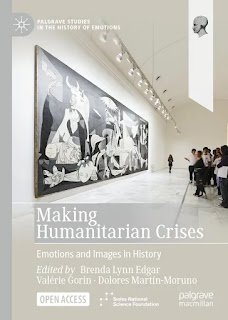Publicado el número 42 (1) de Dynamis

DYNAMIS. Acta Hispanica ad Medicinae Scientiarumque Historiam Illustrandam VOLUMEN 42 (1), 2022 SUMARIO ARTÍCULOS Entre la voluntad de Allāh y las balas de los jnūn: La epidemia de peste de 1799 y 1800 en Marruecos Araceli González Vázquez Las relaciones entre higienismo y urbanismo en la obra de Felipe Hauser Carmen Gil de Arriba El Santo Hospital de Caridad de Ferrol a finales del Antiguo Régimen: un análisis sociodemográfico Alfredo Martín García “Igual que en su casa”: la construcción del paciente hospitalario en las clínicas quirúrgicas de la Barcelona de 1900 Alfons Zarzoso ...
